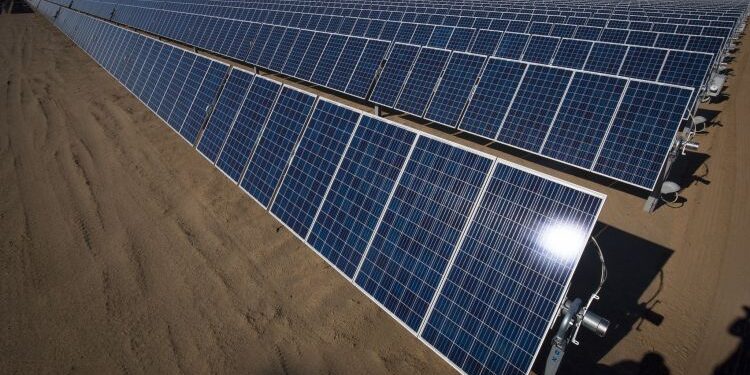Electricity production from solar parks in Mozambique increased by nearly 14% in the first quarter of this year compared to the same period last year, according to official data reviewed by Lusa. However, solar energy still accounts for less than 0.5% of the country’s total electricity production.
The government’s budget execution report for January to March indicates that the country’s six large solar parks, along with other smaller plants, produced a total of 19,688 megawatt-hours (MWh) during this period, up from 17,328 MWh in the first three months of 2023.
Despite this growth, solar parks contributed only 0.4% to Mozambique’s total electricity production in the first quarter.
The majority of electricity was generated by hydroelectric plants, which accounted for 84.6% of the total, with the Cahora-Bassa Hydroelectric Plant alone producing 82.2%.
Mozambique’s government plans to expand solar power stations in at least five locations by 2030, aiming for a capacity of 1,000 MW.
This initiative is described as a “true solar revolution” in the Energy Transition Strategy (ETS), as reported by Lusa in February.
“Accelerating these types of projects to a larger scale is the simplest way to solve Mozambique’s strategic dilemma after 2030: having to choose between green energy for export or supplying energy to industrial consumers,” the ETS document states.
As of last year, Mozambique had projects for 125 MW of solar power, with 80 MW already connected to the grid. The government acknowledges that dependence on fossil fuels will continue for decades, even with the ETS in place.
The ETS outlines an investment of around $80 billion (€73 billion) by 2050, aiming to develop at least 1,000 MW of new solar capacity and 200 MW to 500 MW of new onshore wind power capacity by 2030. By 2050, the goal is to have at least 7.5 GW of solar capacity and up to 2.5 GW of wind power capacity installed.
To facilitate this, the government plans to build on the Renewable Energy Auction Programme in Mozambique, which introduces competition in the awarding of renewable energy contracts.
The ETS highlights South Africa’s rapid solar expansion following similar auctions as a regional example to follow.
“Large industrial investors who need large amounts of green electricity should be encouraged, through a favorable business and regulatory environment, to develop large-scale solar and wind energy projects,” the ETS document adds.
Mozambique’s president, Filipe Nyusi, emphasized at the COP28 United Nations climate summit in Dubai that the ETS “not only places Mozambique at the forefront of climate innovation, but also positions it as an attractive sustainable investment destination.”
![]()




